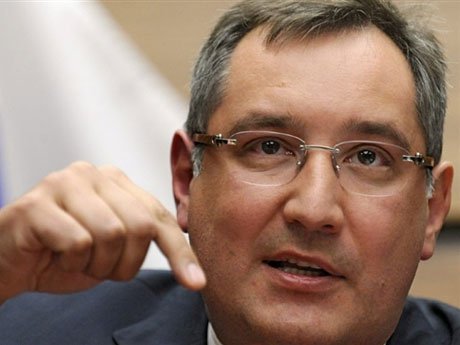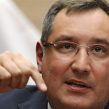
The Post-Electoral Powerfight in Moscow
Publication: Eurasia Daily Monitor Volume: 9 Issue: 53
By:

The national election season is over in Russia. On May 7, President-elect Vladimir Putin will be inaugurated and a new administration must be installed in the Kremlin together with a new Cabinet. The outgoing President Dmitry Medvedev seems assured of an appointment as next Prime Minister. Putin’s old-time KGB buddy Sergei Ivanov has been moved to the Kremlin last December as chief of the presidential administration together with hard-line Putin loyalist Vyacheslav Volodin as first deputy chief of administration. Putin has specifically announced his intention to keep Ivanov as part of the administration together with Volodin, but the majority of other long-time Putin loyalists and ministers are at present in a state of limbo, and Moscow is full of speculation as to who will be going where and doing what.
Since 2000, Putin has built a nomenklatura structure of crony state capitalism: Loyal buddies are moved from one position of power to another, from the Cabinet to the Kremlin and then to parliament or to the board of state-controlled corporations. The members of the Putin nomenklatura have amassed vast fortunes through corrupt inside dealings and seem intent on continuing to stay close to power and money, while Putin and Medvedev have promised change, new faces in government, more efficiency and less corruption. Putin’s relocation to the Kremlin from the Cabinet with his cronies and subordinates, and Medvedev with his circle of followers in the opposite direction, has been a source of tension and intrigue.
Igor Igoshin, a ruling United Russia deputy on the State Duma’s economic policy committee, states that while “very serious changes” in the Cabinet are inevitable, the positions of Finance Minister Anton Siluanov and Economic Development Minister Elvira Nabiullina are secure (The Moscow Times, March 14). Nabiullina herself refused to tell reporters whether she intends to stay at her present position in the government: “It’s not for me to decide.” (ITAR-TASS, March 14). Tatyana Golikova, the Minister of Health and Social Development, is one of the most publicly disliked members of the present Cabinet, since the public health organization in Russia is in tatters and the social security system is bankrupt. Golikova has been deputy finance minister from 1999 to 2007, before becoming Minister of Health and Social Development, and Putin apparently likes her. Well placed government sources say Golikova’s ministry will be split into two – Ministry of Health and Ministry of Social Security – while she will replace Nabiullina as Economic Development Minister. But, Nabiullina will resist, and no one seems to know the final outcome (Izvestia, March 15).
Power, influence and billions of rubles in budget funds that can be swindled are at stake as the back room battles of “reforming” the government and the Kremlin administration rage in Moscow. Putin’s ministers and other top cronies are not politicians seeking public office to foster a public career, but in most cases reclusive bureaucrats that hate the limelight of public interest. There is an exception – the flamboyant anti-Western nationalist politician Dmitry Rogozin. Deputy Prime Minster in charge of the defense industry, Rogozin was appointed to the cabinet at the end of last December after almost four years of honorary exile as Moscow’s permanent representative to NATO headquarters in Brussels. Rogozin has been constantly meeting with the press, running a micro blog on Twitter and providing a stream of quotes about how he is going to fight corruption and waste in defense procurement, while vocally promoting the great potential of the Russian defense industry (EDM, January 19).
This week, Moskovsky Komsomolets daily quoted “a number of sources, including those in the military-industrial complex” that imply Rogozin could be appointed Defense Minister while retaining the post of deputy prime minster. Rogozin could become a defense tsar, uniting under his mantle both the military and defense industry. Last year Medvedev and Putin approved a plan to drastically increase defense spending by allocating some $870 billion until 2020 to renovate the defense industry and begin a massive procurement program to modernize Russia’s military. The implementation of this ambitious program has been hampered by constant squabbles between the defense industry and Defense Ministry officials who complain that the arms producers and designers are selling outdated weapons and are offering them at viciously high prices, using political pressure to make the military buy. If Rogozin becomes the main curator of arms production and at the same time, as Defense Minister, the main purchaser, this could “help reach a compromise” that would streamline defense budget appropriations (Moskovsky Komsomolets, March 14).
Since last September, while still officially continuing to be Russia’s representative at NATO in Brussels, Rogozin joined a public committee of Medvedev’s supporters in the run-up to the December 4 Duma elections and prepared a report outlining plans to reform Russia’s struggling defense industry (Interfax, December 16). Rogozin was already then considered a possible new defense minister, apparently supported by Medvedev and today additionally by influential defense industry chiefs. At the same time Rogozin is an outsider to the Putin clan with a history that includes political confrontation with Putin’s Kremlin. In December 2003, Rogozin was elected to the Duma as leader of the nationalist Rodina party, supported by Putin’s administration, but later fell out with the Kremlin, was ousted as party leader and became a speaker at extreme nationalist rallies. In 2007, he took part in street nationalist actions that were dispersed by riot police. Since his appointment to Brussels, Rogozin has been outright loyal, but seems to have far-reaching political ambitions, which Putin may find dangerous or inappropriate.
Rogozin was co-opted into the Cabinet, but he did not manage to bring Russian nationalists with him into the fold. Nationalists have been actively taking part in large antigovernment demonstrations in Moscow, aggressively demanding Putin’s resignation. In Tunis and in Egypt recent revolutions succeeded when the military in both countries decided to be neutral after police forces failed to suppress street protests. What Rogozin will do if in the future a political and social crisis in Moscow requires army troop deployment is anybody’s guess. In any case, if Rogozin eventually replaces Serdyukov, this could profoundly change the nature of the Russian government transforming it from the present “tandem,” in which Putin has the undisputed upper hand, into a triumvirate in which in time of crisis the ultimate balance of power may land in the hands of a new player.




